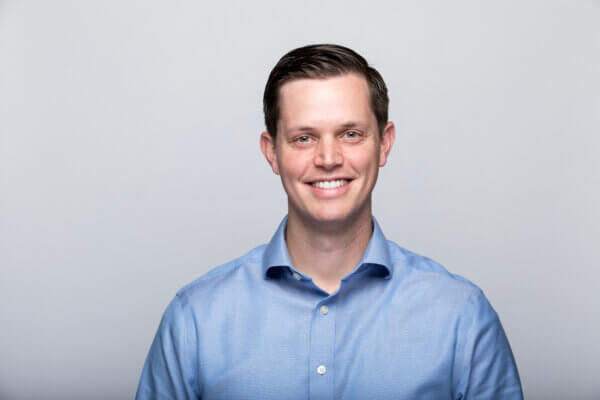
When I joined Signature Leaders full time, I was immediately asked to share my bio. For every program, we create a small book with each faculty, panelist, participant, and delivery team member represented. Not only does it help people get to know one another before the program begins, but it also supports the notion that we discuss in the program, that you need to be able to show your unique Signature across everything you do, including your bio.
Writing about my work history and personal history were fairly straightforward, but I found myself struggling a bit to share why I was at Signature Leaders―as in, why I, as a white male, was a part of this company. I had some insecurity around how people would view me in my role. After all, I wasn’t a woman, AND I was the son of the Founder and CEO. The optics from the outside didn’t feel great.
Fortunately, it was years before my role was questioned. At least, it was years before someone said something outright. I had time to gain confidence that I had value to add, and I had begun to understand what it meant to be an ally. I understood why I was there, and what I could do to help.
I’ve had the wonderful opportunity to stand in rooms where incredible women leaders are sharing their experiences, successes, and vulnerabilities. I had read articles and heard stories, but as a man, I had never truly experienced what they all had experienced―feeling like the “only” in the room. I learned so much about that experience from just being in the room. While I was the “only” in many of those rooms with all women leaders, I didn’t feel the same feelings they described.
However, after one program, we received some harsh criticism in a program evaluation that said:
“Why is Rob here? What is his role? Not meant to be negative, but I feel like opening with his accolades or qualifications would be helpful, since it triggered feelings from what we see around us (men in roles that they have due to connections). Not saying that’s the only case here, just feel like it needs to be asked.”
I had heard how these amazing leaders in these rooms had struggled with feeling like they were only chosen because they were women. I had not ever had to feel that myself. Now, I was questioning if I was the right person for this role. I knew I had been helping run and build this great company for 4+ years, but I couldn’t help but think that others couldn’t see that, and that I was an imposter.
I had to take a lesson from our own Self-Limiting Beliefs segment. I took a step back and looked at the evidence. What had I accomplished? What had I contributed to this company? What did I think about my own accolades or qualifications? And I was able to quash this feeling a bit.
It wasn’t until I saw an episode of Ted Lasso―where the former owner of Ted’s team, Rupert, challenges him to darts in a big moment―that I was able to put my remaining feelings into words. Ted accepts the challenge to the darts game, and shares with Rupert a story about being underestimated. His moral is that his bullies growing up were judgmental, but they should’ve been curious. If Rupert was curious, he would’ve asked Ted, “Have you played a lot of darts?” Ted says he would’ve responded, “Yes, every Sunday with my dad, from 10 through 16, until my dad passed away.” And Ted beats Rupert to win the bet and keep him out of the team’s box for the next game.
If the person who gave the negative feedback had chosen to speak to me, to ask me some questions about my role and my past work, to hear from me what I was capable of and what I was “doing here,” she may have found that my experience and my passion for this work was apparent―or maybe she would have found it unsatisfactory―but either way, being curious would have been a better approach than being judgmental.
Just as with every lesson I’ve learned from being in these rooms with these leaders, I aim to apply this one, myself. How can I make sure to limit my bias and give everyone the benefit of the doubt?
About The Author
Robert Seymour: Partner & COO, Signature Leaders
 Rob is a strong business operator with a passion for advancing women in leadership. This passion stems from watching Carol’s career evolve and observing the challenges that his wife faced, and others still face, as women advancing in their careers.
Rob is a strong business operator with a passion for advancing women in leadership. This passion stems from watching Carol’s career evolve and observing the challenges that his wife faced, and others still face, as women advancing in their careers.
Carol’s unique approach to addressing these challenges, focused on providing the highest quality development experiences, compelled Rob to join Signature Leaders.
As Partner and COO of Signature Leaders, Rob drives operations, sales and marketing strategy, content development, and strategic initiatives. Rob oversees the team members at Signature Leaders responsible for program delivery and the Signature Collective, which focuses on alumni engagement. He manages about a dozen of Signature Leaders’ strategic client accounts, and he builds new offerings to meet the needs of all Signature clients. He also writes for Signature’s blog, and he edited and managed the production of Carol’s first book, Wisdom Warriors: Journeys Through Leadership and Life, which provides candid stories from over 70 accomplished business leaders, who share their hard-earned experiences to benefit the leaders rising through the ranks behind them.
In 2013, Rob began serving as the CFO for Signature Leaders while working full time as a Manager in Accenture’s Health practice. As a management consultant, Rob navigated clients through process and organizational changes during large-scale technology transformations.
Rob earned a BS in Economics from the University of Pennsylvania’s Wharton School, where he pitched for Penn’s Varsity Baseball Team for four years. He and his wife, Michelle, live in Los Angeles with their daughter (Blake) and son (Bowen). Rob enjoys coaching sports for his children’s teams, playing golf, finding ways to stay fit, and taking on new challenges in the form of home improvement projects.
